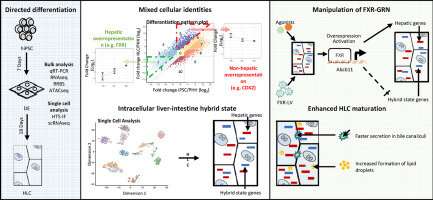Similarity of hepatocytes from liver and from stem cells improved

Research with stem cells is becoming increasingly important, because stem cells can develop into any body cell—skin cells, nerve cells or organ cells such as liver cells, the so-called hepatocytes. Stem cells can therefore be used, for example, in therapy for organ damage or as an alternative to animal experiments.
However, there are still major differences between hepatocytes obtained from a liver and those obtained from stem cells. Researchers at the Leibniz Research Centre for Working Environments and Human Factors in Dortmund (IfADo) have successfully identified an important reason for this difference, so that the two cell variants can be made more similar in the future.
The successful generation of human hepatocytes is still hampered by major differences between hepatocytes derived from stem cells and hepatocytes derived from a liver. In a study published in the Journal of Hepatology, researchers led by Patrick Nell have now identified that stem cell-derived hepatocytes are hybrid cells with characteristics of hepatocytes and intestinal cells. They have also identified a specific receptor that can be used to suppress the intestinal characteristics in the cell and activate liver characteristics. This has improved the similarity of derived hepatocytes from a liver and from stem cells.
More information: Patrick Nell et al, Identification of an FXR-modulated liver-intestine hybrid state in iPSC-derived hepatocyte-like cells, Journal of Hepatology (2022). DOI: 10.1016/j.jhep.2022.07.009
Provided by Leibniz Institute for Interactive Materials




















